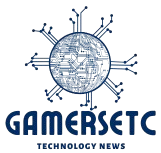Alphabets (GOOG 0.73%) (GOOGLE 0.78%) may be best known as the parent company of Google, as well as YouTube, Google Cloud, and the autonomous driving start-up Waymo. But in addition to those businesses, Alphabet has also become a prolific investor in both publicly traded stocks and privately held start-ups. Its investment portfolio is worth nearly $2 billion and consists of 49 stocks primarily across tech and healthcare.
Not surprisingly, there are several software stocks in its holdings. Here are three software-as-a-service stocks the tech giant owns that look like attractive buys today.
1. GitLab: A DevOps disruptor
GitLab (GTLB 3.69%) provides a cloud-based platform for DevOps, giving developers and IT personnel the tools they need to efficiently create and deploy software.
The company went public last October, and while the stock has fallen in the tech sell-off this year, its growth numbers have been impressive. Revenue jumped 69% to $113 million, and though the company is still operating at a loss, its margins are improving, and GitLab now expects to be breakeven on a free-cash-flow basis by 2024.
Alphabet invested in GitLab when it was still a privately held company, increasing its stake in GitLab after it lost out in a bidding war for rival GitHub, which was acquired by Microsoft for $7.5 billion in 2018. Alphabet initially invested $20 million in GitLab in 2017 and participated in a $100 million investing round the following year. GitLab also received an investment from Intel, alibabaand Nasdaq. Today, Alphabet owns 593,000 shares in GitLab worth around $30 million.
GitLab is in something of a duopoly with GitHub as both companies offer a replacement for individual point solutions in DevOps. GitLab is growing fast into an addressable market valued at $40 billion, giving the stock a lot of upside potential.
2. Amplitude: Paving the way in digital optimization
amplitude (AMPL 2.28%), which went public last year as well, specializes in product data analytics software. The company helps businesses measure and understand how customers use their digital products. It helped Platoon recognizing that social interaction was key to a positive user experience, and Burger King used it to guide its Whopper Detour campaign, which offered a Whopper for a penny to anyone who downloaded the Burger King app near a McDonald’s. The company says that digital optimization is the next step after digital transformation, and demand is growing as companies recognize the need for it.
Amplitude’s revenue rose 35% in its most recent quarter to $61.6 million, and its current performance remaining obligations, or its backlog over the next year, jumped 46% to $183.9 million.
Amplitude actually considers Google Analytics to be one of its biggest competitors, even though Google Analytics has traditionally been focusing on marketing data rather than product data. Despite that competition, Alphabet still owns a small stake with 189,000 shares worth roughly $2.9 million.
As more companies go down the digital optimization path, Amplitude looks set to be a leader in the burgeoning sector.
3. Snowflake: Dominating data warehousing
Since it went public in 2020, Snowflakes (SNOW 8.36%) has been one of the fastest-growing companies in software. It has seen huge demand for its data warehousing services, which allow companies to store, process, and analyze their data.
In the third quarter, Snowflake’s revenue jumped 67% to $522.8 million, and it had a net revenue retention rate of 165%, showing that existing customers increased their spending by 65% over the last four quarters.
Snowflake uses a consumption model, which makes it easy for customers to spend more as Snowflake charges them based on the compute and storage resources they use per day. The model makes it easy for Snowflake to grow revenue as it doesn’t have to upsell its customers or add seat licenses to expand relationships.
Alphabet owns 535,000 shares valued at roughly $91 million, and it’s not the only high-profile investor in Snowflake. Warren Buffett’s Berkshire Hathaway also owns shares, though Buffett’s deputies have been credited with that purchase.
Like the rest of the tech sector, Snowflake is down sharply, having fallen 58% year to date. But that could set up a buying opportunity given the company’s rapid growth and its large customer base.
Like the tech stocks it owns, Alphabet stock has also been tripped up by the tech sell-off, but all three of these stocks are leaders in their software sector. When the economy turns around and market sentiment shifts, these stocks could be poised to surge.
Suzanne Frey, an executive at Alphabet, is a member of The Motley Fool’s board of directors. Jeremy Bowman has positions in Alibaba Group and Amplitude. The Motley Fool has positions in and recommends Alphabet, Berkshire Hathaway, Intel, Microsoft, Peloton Interactive, and Snowflake. The Motley Fool recommends Nasdaq and recommends the following options: long January 2023 $200 calls on Berkshire Hathaway, long January 2023 $57.50 calls on Intel, long January 2025 $45 calls on Intel, short January 2023 $200 puts on Berkshire Hathaway, short January 2023 $265 calls on Berkshire Hathaway, and short January 2025 $45 puts on Intel. The Motley Fool has a disclosure policy.

